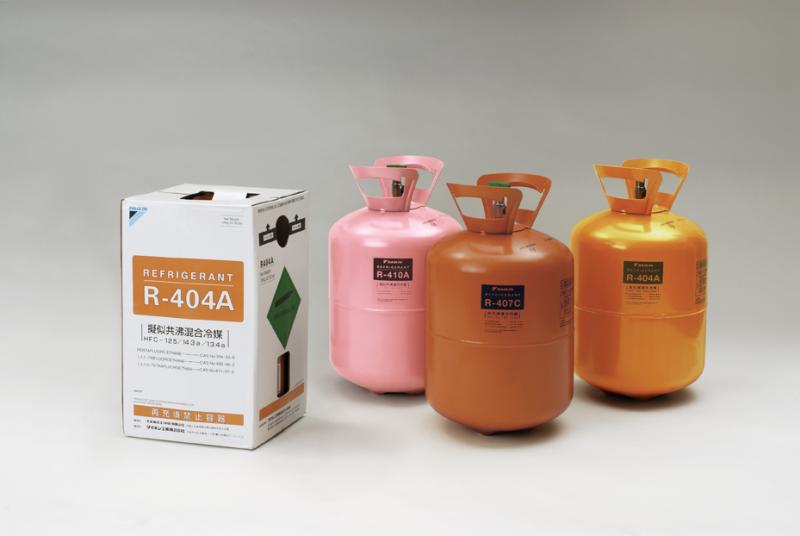
Climate bombs called HFCs
How the industry lobby is trying to block a phase-out of super greenhouse gases in Europe’s refrigeration and air conditioning systems
Summary
An army of several hundred industry lobbyists, many representing Japanese and North American corporations, has quietly laid siege to Brussels in an effort to persuade the European Union (EU) not to ban powerful greenhouse gases known as hydrofluorocarbons (HFCs) present in Europe’s refrigeration and air conditioning systems.
Representing more than one hundred companies and industry groups, up to 353 industry advocates are trying to block these proposals, far outnumbering voices from environmental campaign groups and other sectors of the industry which do not rely on these harmful gases.
In Europe the €30-billion fluorinated gases (F-gas) industry – of which HFCs represent 90% of F-gas use – produces air conditioning equipment, components, cooling systems, heat pumps, foam blowers, electrical switches, and refrigerant chemicals. Now the F-gas industry is attempting to influence a European regulatory review process to prevent a pioneering switch to cost-effective, safe alternatives which are already – or soon will be – available on the market.
Often overlooked, these F-gases are crucial when it comes to tackling climate change. HFCs have a global warming potential often thousands of times higher than CO2 and are one of the fastest growing sources of greenhouse gas emissions in the world. By 2050 estimates suggest they could account for up to 20% of projected global greenhouse gas emissions unless action is taken.
European policy makers now recognise the need to shift to a low-carbon economy by fostering innovation here in Europe. The F-gas regulatory review process not only offers enormously cost-effective and significant mitigation opportunities but it is a chance for Europe to innovate and develop technology on home ground.
Research by Corporate Europe Observatory (CEO), based on data provided in the EU Transparency Register (a register of companies and organisations which have voluntarily declared that they are seeking to influence the European Commission or Parliament), found a significant increase in the number of registered companies and trade associations with an interest in F-gases at the end of 2011.
CEO found that 52% of these industry bodies registered during the last quarter of 2011. For example, in the first two weeks of November, 14 European subsidiaries of the Japanese air conditioning giant Daikin appeared on the official Brussels lobby map. Given that the register is voluntary, it is only a rough barometer of major EU lobbying trends and these findings may represent just the tip of the iceberg. This lobbying frenzy is because HFC manufacturers own profitable patents on these man-made gases, which face potential regulation by the European Commission.
The lobby battle is currently raging in the corridors of power in Brussels. In early September the European Commission’s DG Climate Action submitted new legislative proposals on HFCs to inter-services consultation. This means that formal talks have started between the different Directorates-General of the Commission on the proposals from DG Climate Action – a crucial phase before the legislative proposals are finalised and launched by the Commission, probably in late November.
A handful of public interest NGOs are calling on the Commission to ban the use of these super greenhouse gases in new equipment – a measure recommended by several independent studies and an approach already taken by some member states, including Denmark and Austria. But the task of NGOs is not easy, and demonstrates the imbalance at the heart of public policy making.
Out of the 111 F-gas industry organisations identified by this research, 100 are registered in the Transparency Register and have declared a total lobbying budget of €23.9 million. In contrast, eight organisations representing environmental interests and active on F-gas issues declared €2.2 million in total for all their advocacy activities, while eight companies or platforms supporting natural refrigerants declared only €0.9 million.
Taking into account both the number of lobbyists and lobbying budgets, the F-gas industry has on average a lobbying power at least 10 times greater than the combined efforts of the NGOs and the industry that supports natural refrigerants. This “David and Goliath” situation is not unique to the issue of HFCs. However with media attention focused on less technically complex issues associated with climate change, the fear is that F-gas industry interests may permeate into European policy-making, at the cost of the climate, with little public awareness.
Some parts of the F-gas industry are lobbying to keep the current Regulation, while more progressive elements are pushing for a gradual phase-down of the use of HFCs. Environmentalists want to see supporting actions to ensure HFC use is curtailed. These include the use of HFC bans in sectors where viable alternatives will become available. Using a phase-down approach on its own would not only keep the EU market open to the HFCs and equipment using HFCs far longer than necessary, but it would also create market uncertainty for the companies providing sustainable alternatives which require clear timeframes for planning and investment purposes.
Today, European Union taxpayers and consumers spend over €1 billion a year to contain leaks of F-gases and to recover these gases at the end of the equipment life, and these costs will increase over time, according to a Commission-funded study. These costs are already twice as much as predicted by an independent study in 2005. This containment and recovery strategy is at the core of the F-Gas Regulation adopted by the EU in 2006 – and this is boasted as a victory to avoid bans by the HFC lobby.
The Commission’s proposal to review the F-Gas Regulation must be ambitious from the start because it will later frame the debates in the Parliament and the Council. An ambitious EU regulation could also facilitate and drive international talks under the Montreal Protocol that could regulate HFC consumption and production at the global level. This is particularly important as in the years and decades to come most HFC emissions will come from the developing world.
